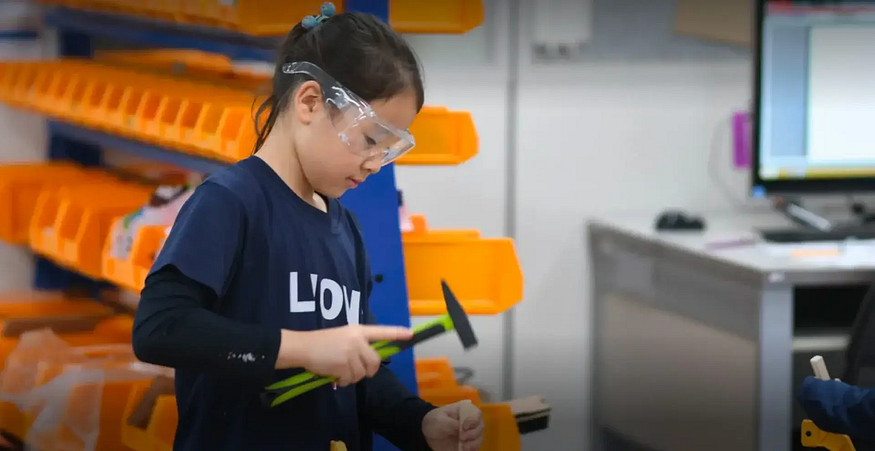
Whole-child development means nurturing all aspects of a child academic, social, emotional, and personal so that each student grows not just in knowledge, but in character, confidence, and capacity. The IB Primary Years Program (PYP) as delivered at Dwight Seoul is structured specifically to support this holistic growth. Below are the key ways the Primary Years Curriculum supports the development of the whole child.
1. Inquiry-Based Learning Builds Intellectual Curiosity and Critical Thinking
The PYP at Dwight Seoul emphasizes inquiry rather than rote memorization. Students are encouraged to ask meaningful questions, explore real-world issues, and draw connections across different knowledge areas.
This inquiry-based approach nurtures critical thinking and independent learning, helping children to not just know facts, but to understand concepts, make judgments, and become self-motivated learners. These are central parts of whole-child development: intellectual growth paired with curiosity and agency.
2. Transdisciplinary Themes Promote Integration Across Subjects
Rather than treating subjects as isolated silos, the program uses transdisciplinary themes “Who We Are”, “Where We Are in Place and Time”, “How We Express Ourselves”, “How the World Works”, “How We Organize Ourselves”, and “Sharing the Planet” to frame learning units.
Students explore units of inquiry under these themes, integrating six subject areas: mathematics; science; social studies; language; arts; physical, social and personal education.
This helps students see how different disciplines interconnect, which builds deeper understanding but also supports adaptability, integrative thinking, and a sense that learning is relevant and connected to their lives. All of which nurture cognitive as well as emotional and ethical dimensions of growth.
3. Development of the IB Learner Profile Cultivates Social, Emotional, and Ethical Growth
A core feature of the PYP is the IB Learner Profile, which goes beyond academic achievement. It aims to help students discover their strengths and interests, to become not only knowledgeable, but also caring, reflective, inquisitive, socially empathetic, culturally aware, and critical thinkers.
Through the Learner Profile learners are encouraged to develop capacities like empathy, reflection, and social responsibility skills essential for whole-child development. These support emotional maturity and social awareness as much as intellectual growth.
4. Balanced Subject Areas Encourage Well-Rounded Development
By including varied subject areas mathematics, science, social studies, language, arts, and physical, social & personal education the program ensures that students receive broad exposure.
- Arts help with creativity, self-expression, and emotional intelligence.
- Physical, Social & Personal Education nurtures physical health, social skills, personal well-being, and self-management.
- Languages and cultural studies build linguistic competence and global awareness.
This balanced exposure ensures that no dimension physical, emotional, social, aesthetic is left behind.
5. Global-Mindedness and Perspective Foster Personal and Ethical Growth
The PYP isn't inward-looking; it emphasizes global perspectives. Students explore themes of global significance. They gain diverse perspectives and learn to interact with people from different backgrounds.
This helps in developing values like respect, open-mindedness, and ethical awareness, so children grow to be thoughtful, caring citizens, not simply good academically. Such qualities are central to whole-child development building character and social consciousness.
6. Continuity and Consistency Aid Emotional Security and Confidence
Because Dwight Seoul is an IB continuum school (offering PYP, MYP, DP), children experience consistency in learning philosophy and approach as they move from Primary Years into Middle and then Diploma Years.
Such continuity gives students stability, helps build confidence, and reduces friction in transitions supporting emotional well-being. When pedagogical approaches remain coherent, students are better able to focus on growth and self-development rather than adjusting to new styles repeatedly.
7. Teacher Qualification & Learning Environment Support Growth
The school emphasizes hiring faculty certified in IB PYP methodology, who continually engage in professional development.
Further, the learning environment is designed for hands-on, inquiry-based experiences that inspire. Such environments are important for whole-child development because they allow students to explore, experiment, make mistakes safely, and learn in ways that suit different learning styles. All this supports confidence, resilience, and self-esteem.
Conclusion
The Primary Years Curriculum as delivered at Dwight Seoul through the IB Primary Years Program (PYP) supports whole-child development in multiple intertwined ways: intellectually through inquiry and integrated themes; socially and emotionally via the Learner Profile and global perspective; physically and personally via balanced subject inclusion; and through stable, supportive environments delivered by trained educators. At Dwight Seoul, the program doesn't treat children as just learners of subjects it treats them as whole persons growing in a global community.





